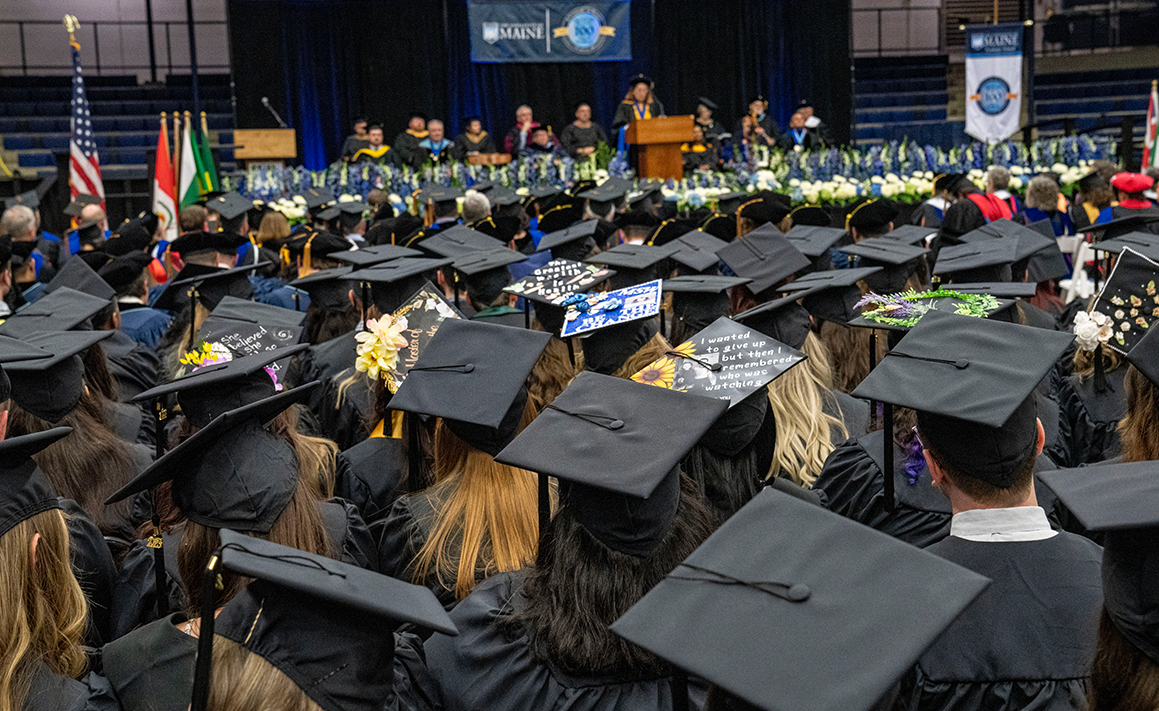Graduate
At the University of Maine School of Social Work, we offer a variety of MSW program options so students can choose a plan of study that meets their needs. Our MSW curriculum uses an advanced generalist framework to ensure graduates are equipped to practice across levels and populations and in a variety of roles and settings. Rooted in social work values and ethics, our program equips students with skills engage, assess, and intervene with individuals, families, groups, communities, organizations, and institutions; frameworks for understanding the complex interplay of human behavior and the social environment; analytical capacities for crafting research and policy; and a commitment to improving the quality of life for people in Maine and globally.

MSW Program Options
Curriculum
The Generalist Curriculum
The generalist curriculum orients students to social work practice and provides the theoretical and practical knowledge base needed to support development of the more advanced body of knowledge, skills, and techniques offered in the Specialization Year. Generalist courses emphasize the diversity of social work and seek to introduce students to the range of roles social workers play in practice settings as well as the range of theories, approaches, and skills they use in their word. The Generalist curriculum includes courses in human behavior and the social environment; social welfare policies and services; social work practice with individuals, small groups, families, organizations, and communities; and the generalist internship experience. Students complete their generalist coursework prepared to practice at the individual, family, group, organization, and community levels and in a variety of roles.
The Specialization Year
Specialization Year coursework prepared graduates for advanced generalist social work practice, building on the knowledge, skills, techniques, and experiences gained during their generalist coursework and internship. In the specialization year, students complete coursework on advanced generalist practice with individuals, families, small groups, organizations, and communities; issues in social welfare policy; social work research; and a specialization year internship. Upon graduating from the MSW program, students are prepared to engage in advanced practice with a variety of populations and in a variety of roles and settings.
Electives
In addition to the required courses in the Generalist and Specialization year curricula, the School of Social Work offers three-credit electives on topics including Adult and Child Psychopathology; Advanced Clinical Practice in Integrated Healthcare; Group Strategies in Health and Mental Health Settings; and History, Assessment, and Intervention in Substance Use. The School offers one-credit electives on a variety of special topics, including Empathy with Challenging Clients; Practice with Children and Youth; Practice with LGBTQ+ Clients; and Social Work Practice and Intimate Partner Violence. Students may also choose to take electives offered as part of the Interprofessional Graduate Certificate in Gerontology, the Graduate Certificate in Disability Studies, or offered through other graduate programs at the University of Maine.
Internship
The internship experience provides students with an opportunity to apply and connect their classroom knowledge to real-world situations by working with a wide range of client systems in various community settings. According to the Council on Social Work Education, internship is the “signature pedagogy” of social work, providing students with both direct instruction and socialization into “the fundamental dimensions of professional work in their discipline: to think, to perform, and to act intentionally, ethically, and with integrity” (2022 EPAS, p. 20). Students who enter the MSW program without a BSW complete two internships as part of their program of study: A 400-hour Generalist internship and a 500-hour Specialization internship, providing them with practice experience in two distinct social work settings. Students who enter with a BSW and qualify for the Advanced Standing MSW program complete one 500-hour Specialization internship. Learn more about the internship experience here.
Social Work Licensing
In Maine there are three levels of social work licensure. Each requires an applicant to attain a specific social work degree (BSW or MSW) and pass a required examination.
BSW-level practitioners are eligible to become a Licensed Social Worker (LSW) and MSW-level practitioners are eligible to become Licensed Masters Social Worker (LMSW) or, provided they have completed coursework in clinical social work, a Licensed Masters Social Worker – Clinical Conditional (LMSW-CC). Social workers with an LMSW-CC and two years of post-graduation clinical practice experience under the supervision of an LCSW are eligible to become an LCSW.
Detailed information about State of Maine licensing regulations and processes can be found on the Maine Board of Social Work Licensure website. MSW students may find this resource on the licensing process helpful.
Frequently Asked Questions

Why a Master of Social Work?
There really isn’t a day that goes by where I am not reflecting on a discussion, an insight, or a piece of wisdom from an instructor or a classmate from the school of social work. Even though I attended the school of social work several years ago, I am constantly applying these lessons in every day practice settings.”
David Gabriel Patrick, MSW, Cofunder Racial Equity & Justice, Care Coordinator
UMaine’s generalist program prepares students for all aspects of a professional social work career. It is directly because of the quality of education, training, and instruction of the MSW program that I have been able to achieve so much… Without the training and mentorship from the School of Social Work, I would never have had the robust, exciting, and impactful career that I have enjoyed for over 20 years!”
Angela Fileccia LCSW, Director, Counseling Center, UMaine
The online-hybrid option provided the flexibility for me to go to graduate school from a distance as I balanced part-time work, family life, and something many of us face in Maine – living in a rural area. I am forever grateful for UMaine’s MSW online-hybrid program, as I don’t believe I would have been able to obtain my MSW degree in a traditional classroom setting.”
Shasta Minery LMSW-cc, Psychiatric Social Worker at Maine Health, PARC
